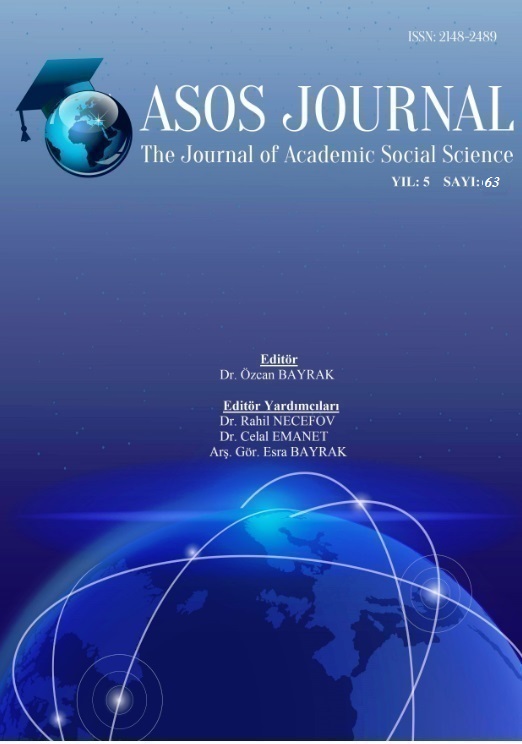Author :
Abstract
Ulus-devleti birçok düşünür, modernleşme ve sanayileşme ile bağlı olarak düşünmektedir. Ulusçuluğun da sanayileşme döneminde olgunlaştığı fikri ağır basmaktadır. Modern dönem ile birlikte devletlerin meşruiyetini ulus-devlete dayandırmaktadır. Ulusun kültürel ve sosyal yapısını devlet ile cisimleştirerek varlığını korumakta ve sürdürmektedir. II. Dünya Savaşından sonra ulus-devlet ile ilgili bazı tartışmalar ortaya çıktı. Bu dönemde ulus-devletin sonu geldiği fikri savunuldu. Ancak II. Dünya Savaşında sonra ulus devlet dönemi sona erdiği düşünülürken Sovyetlerin dağılmasıyla ortaya çıkan yeni ulus devletler ile Balkanlarda yaşanan olaylar ve ardından kurulan yeni ulus devletler, söz konusu dönemin bitmediğini göstermektedir. Halen günümüzde devletleşmeyen bazı ulusların ulus-devlet hayalinin peşinde olması ulus-devletin güncelliğini koruduğunun işaretlerindendir. Çalışmada, ulus, milliyetçilik, küreselleşme bağlamında ulus-devlet değerlendirilmesi yapılmaktadır. Bu bağlamda ulus-devlet olma hayalleri kuranların ve bunun karşısında duran küresel sistemlerin arasındaki antagonistik durumlardan küresel güçlerin baskın olduğu görülmektedir.
Keywords
Abstract
The nation-state is thought by many thinkers, depending on modernization and industrialization. The idea that nationalism is matured in the period of industrialization also stands out. Along with the modern period, the legitimacy of the states is based on the nation-state. It preserves and maintains its existence by embodying the cultural and social structure of the nation with the state. II. After the World War, some debates about nation-state emerged. The idea that the nation-state ended in this period was defended. However, II. In the aftermath of World War II, it was thought that the end of the nation-state period ended with the emergence of new nation-states with the disintegration of the Soviets, the events in the Balkans, and the new nation- The fact that some nations that are not nationalized today are pursuing the dream of nation-state is a sign that you have preserved the nation-state update.In the Second World War, after the end of the nation-state period, the new nation states emerged with the disintegration of the Soviets, and the events happening in the Balkans, and the new nation states that were formed, show that the period is not over. In the study, nation-state is evaluated in the context of nation, nationalism, globalization. In this context, global forces seem to dominate the antagonistic situation between the dreamers of being a nation-state and the global systems facing it.





